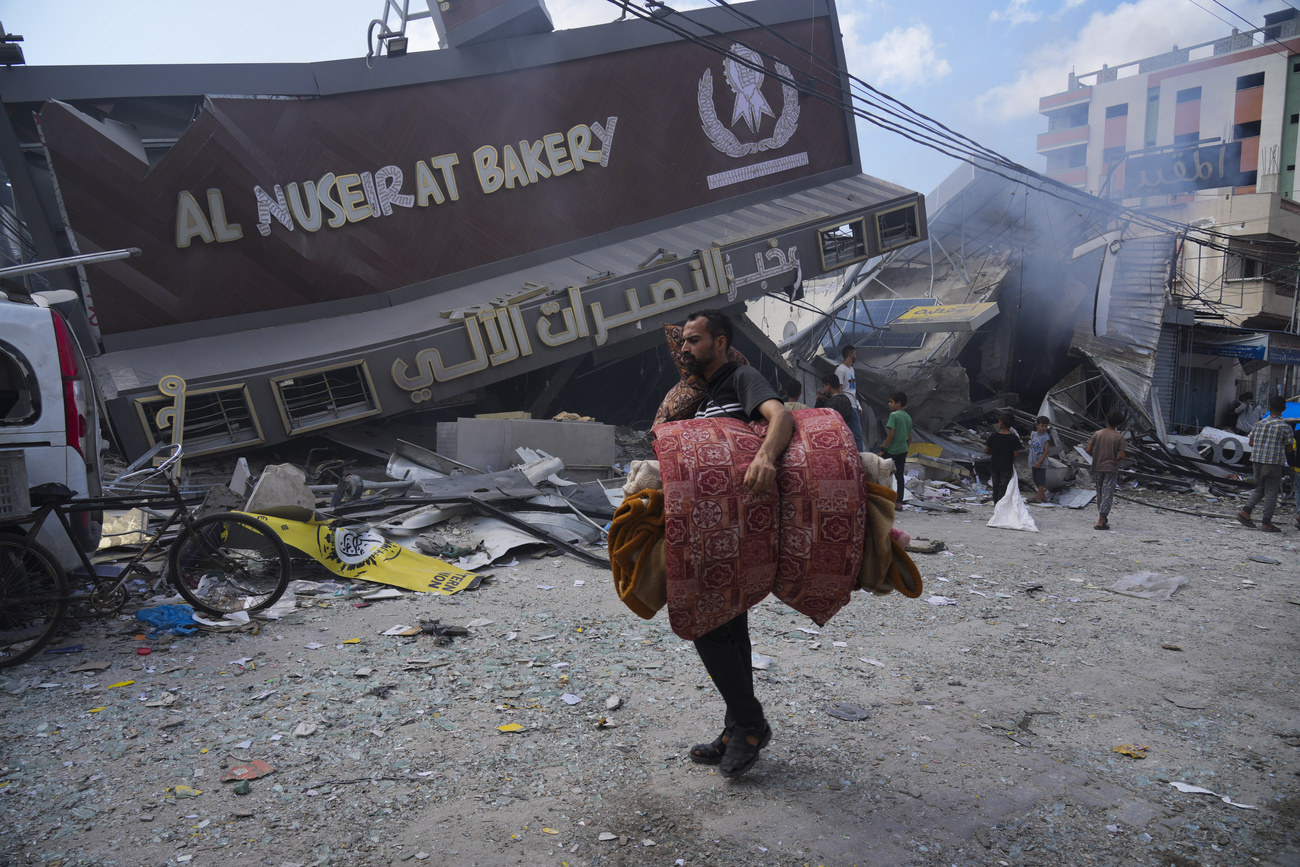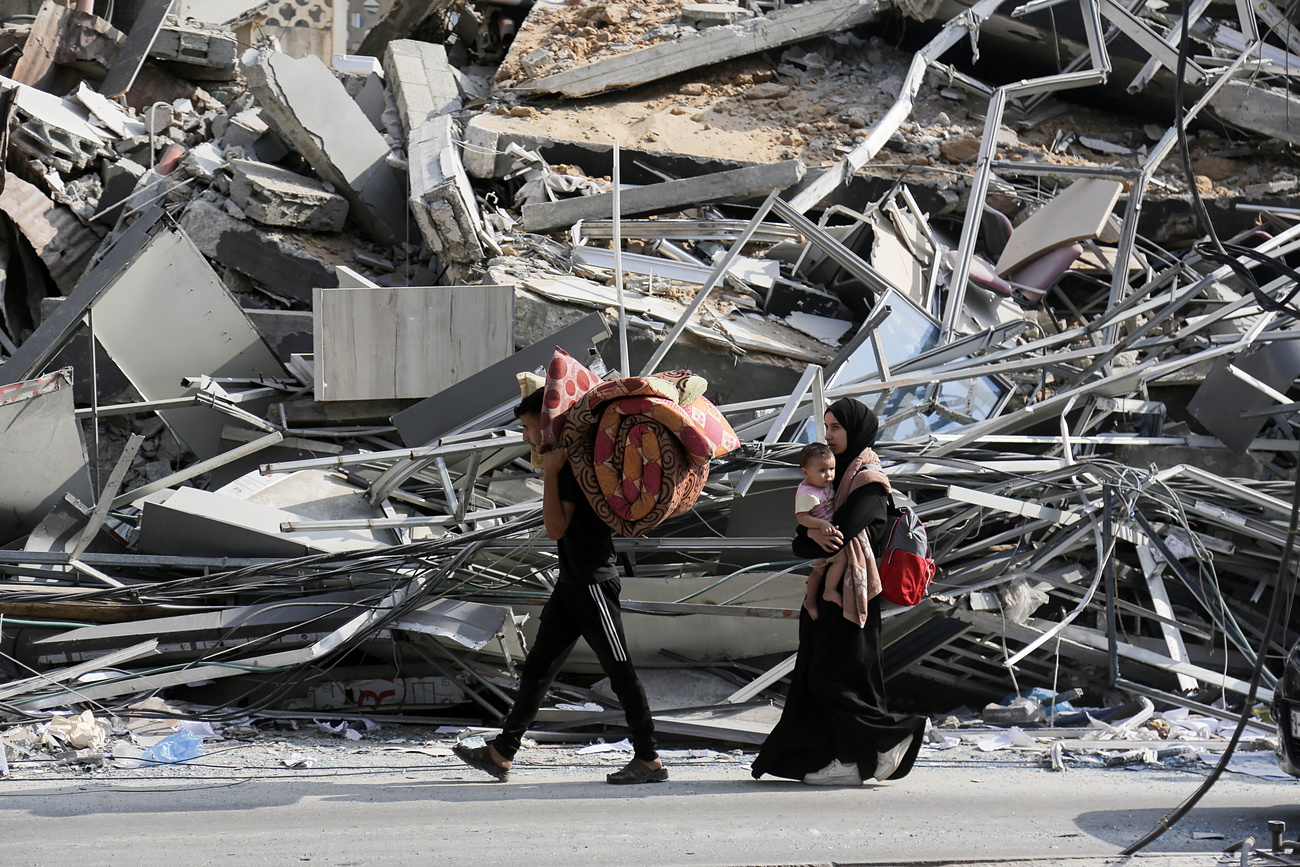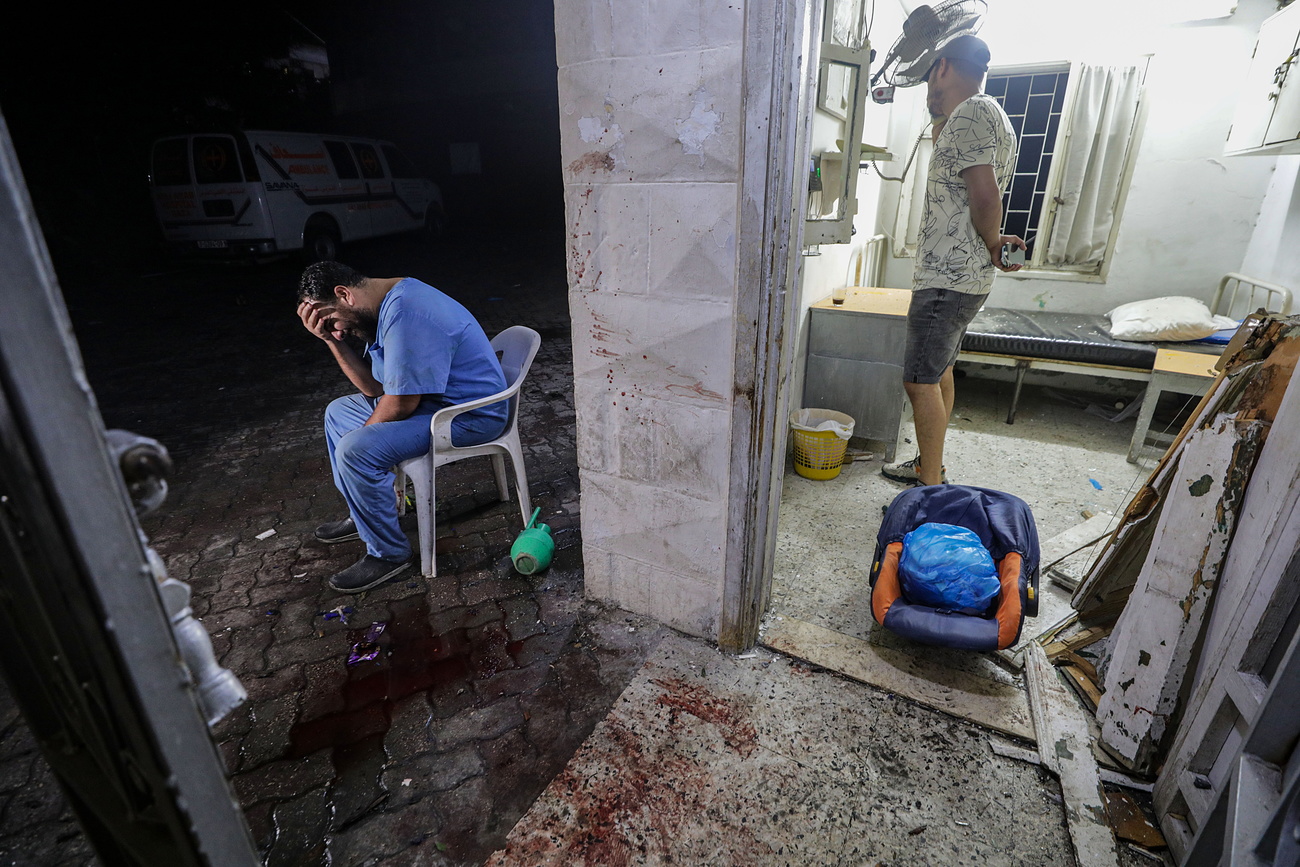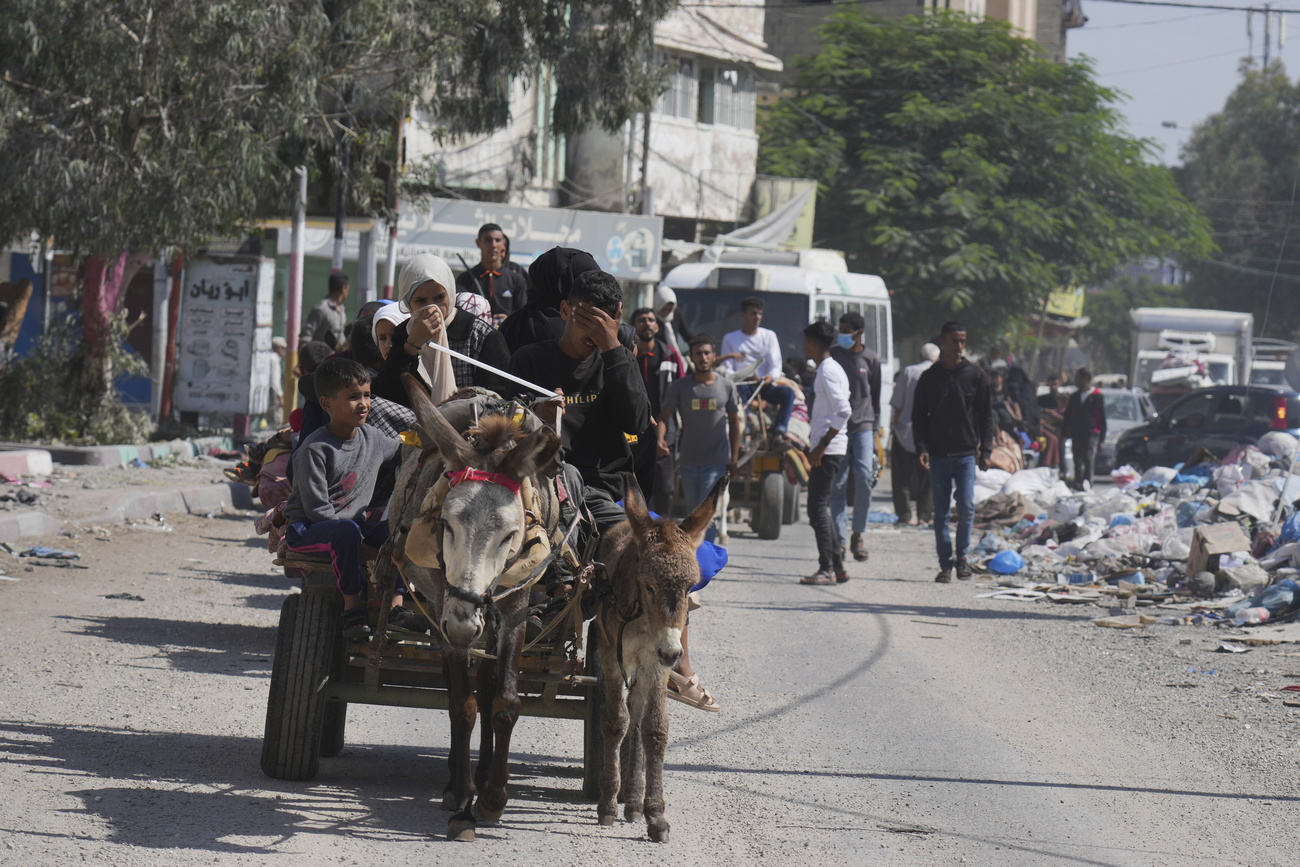Humanitarian groups frustrated by Gaza Strip siege

Humanitarian organisations have been forced to watch the growing civilian crisis in the Gaza Strip from the sidelines, unable to send in supplies or to properly help those in need among the region’s 2.3 million population.
Emergency supplies of food, water and medication might soon start trickling in through Egypt for the first time since the Gaza Strip was sealed off following Hamas attacks in Israel on October 7.
+ How easy is it for Switzerland to name Hamas a terrorist group?
Swiss-based Terres des Hommes (Tdh) is standing by with emergency kits, containing sleeping bags, hygiene items for women and girls and school supplies for children.
But for the time being, Tdh has been forced to prioritise the safety of its 11 staff members in the Gaza Strip.
“We sleep with 20 people in one room, without electricity, and it is very difficult to find water,” Tdh Gaza office director Khitam Abuhamad told SWI swissinfo.ch by email. “The night is scary for us, as it is for all the people in Gaza, and we try to sleep knowing that this could be our last night. We always say goodbye to each other before we go to sleep. Waking up every morning is like a miracle.”
Full operations suspended
Aid agency Medicins sans Frontieres (Doctors Without Borders) has also found present conditions extremely challenging for carrying out its task of caring for the sick – a service it has performed in Gaza since 1989.

More
‘I respect Switzerland’s autonomy, yet the abstention leaves me deeply saddened’
At least 3,700 civilians have been killed by shelling and air strikes, and around 12,000 injured, according to the Palestinian health authorities. In addition, around a million people have been displaced by the hostilities.
“As a result of the ongoing siege heavy bombardments and indiscriminate attacks, MSF has been forced to suspend coordination of humanitarian operations in Gaza,” MSF stated. “We are not managing medical activities at this stage. However, some of our Palestinian colleagues are still working in hospitals in the north and south of Gaza.”
“We want to access people in need of medical care and offer life-saving humanitarian services. We need basic guarantees of safety to be able to provide humanitarian and medical services.”
Emergency funds
MSF has dipped into its emergency fund to cope with the current situation and to prepare itself for a resumption of full activities.
Swiss Solidarity, the humanitarian arm of the Swiss Broadcasting Corporation, SWI swissinfo.ch’s parent company, is also deploying an emergency relief fund (to which people can contribute at any timeExternal link) to support various aid agencies in the Gaza Strip.
The volatility and uncertainty of the situation on the ground has precented Swiss Solidarity from running a specific fundraising campaign in Switzerland. Before launching such a fundraise “it must be ensured that the donations collected can be effectively converted into aid in the foreseeable future”, Swiss Solidarity said.
This requires that partner organisations, which includes MSF and TdH, have the ability to operate effectively on the ground in disaster zones with sufficient personnel and supplies. “Unfortunately, humanitarian aid for affected people is currently only possible – if at all – under enormously difficult conditions,” Swiss Solidarity added.
Humanitarian groups, including the International Committee of the Red Cross (ICRC), have called for ceasefires to allow them to tend to stricken civilians.
“With a military siege in place, humanitarian organisations including the ICRC will not be able to assist such a massive displacement of people in Gaza. The needs are staggering, and humanitarian organisations must be able to increase aid operations,” the ICRC has stated.
Hospitals in danger
Israel says it will allow essential supplies to enter the Gaza Strip via the Rafah crossing with Egypt. But it remains unclear what quantities of supplies can get through and how fast.
“Our teams are actively working on preparing medical and humanitarian supplies to be sent to Gaza when access is open,” said MSF. “It is vital to get the hospitals back up and running. To do that, regular ceasefires must be guaranteed for medicines and fuel to be brought in on a massive scale. If we run out of anaesthetic drugs, surgeons will be forced to stop operations.”
Tdh says it is recruiting extra staff in the region in readiness to ramp up its activities, which will include psychological support for children and families.
“We are waiting for the border to open and our staff are working tirelessly to prepare and distribute emergency packages as soon as the way is clear,” said the humanitarian agency.

More
‘When the rocket alarm goes off, we go into the stairwell, as far away from the glass as possible’

In compliance with the JTI standards
More: SWI swissinfo.ch certified by the Journalism Trust Initiative













You can find an overview of ongoing debates with our journalists here . Please join us!
If you want to start a conversation about a topic raised in this article or want to report factual errors, email us at english@swissinfo.ch.